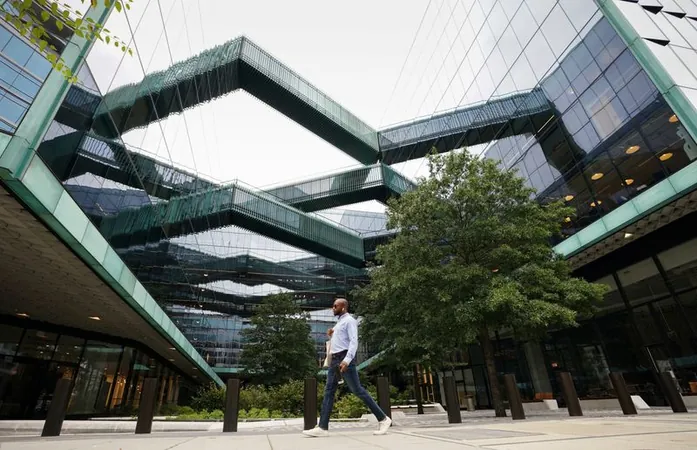
Fannie Mae and Freddie Mac Stock Prices Skyrocket as Federal Agencies Unveil Privatization Blueprint
2025-01-03
Author: Jessica Wong
Fannie Mae and Freddie Mac Stock Prices Skyrocket as Federal Agencies Unveil Privatization Blueprint
Shares of Fannie Mae and Freddie Mac, the prominent mortgage entities under U.S. government oversight since the tumultuous financial crisis of 2008, witnessed a remarkable surge on Friday. This significant rise in stock prices follows the recent announcement from federal agencies outlining a strategic framework for their anticipated exit from conservatorship.
The U.S. Treasury Department and the Federal Housing Finance Agency (FHFA) revealed that they have modified existing agreements with these institutions to facilitate a structured and non-disruptive return to private control. The agencies also confirmed that they would invite public feedback before finalizing the release of these "government-sponsored enterprises" (GSEs) from federal regulation.
This potential exit from conservatorship represents a pivotal moment for Fannie Mae and Freddie Mac. Established by Congress to bolster the housing market by providing accessible mortgage financing, both entities were severely impacted during the 2008 crisis, leading to a government bailout funded by taxpayer money. In return for the rescue, the Treasury received preferred shares that have since yielded billions in dividends.
There have been ongoing efforts to shift Fannie and Freddie back to private ownership, with initiatives pursued even during the first term of President Donald Trump. With Trump poised to assume office again soon, the latest developments could significantly influence housing finance policy.
Billionaire investor Bill Ackman has recently expressed optimism regarding the possibility of the incoming administration facilitating the GSEs' privatization. Market analysts, including KBW, have noted that such a move may indeed be on the agenda during Trump's second term.
As of the latest trading data, shares of Fannie Mae surged by 24.4%, reaching $4.23—their highest price point since 2017. Meanwhile, Freddie Mac saw a climb of 23.2%, hitting $4.15, a level not observed in over eight years.
The implications of this development extend beyond shareholders; a successful transition back to the private sector could reshape the dynamics of the housing market and affect millions of American homeowners seeking affordable financing options. As the privatization discussions unfold, industry stakeholders and consumers alike will be keenly watching for further updates and developments on this significant economic topic.


 Brasil (PT)
Brasil (PT)
 Canada (EN)
Canada (EN)
 Chile (ES)
Chile (ES)
 Česko (CS)
Česko (CS)
 대한민국 (KO)
대한민국 (KO)
 España (ES)
España (ES)
 France (FR)
France (FR)
 Hong Kong (EN)
Hong Kong (EN)
 Italia (IT)
Italia (IT)
 日本 (JA)
日本 (JA)
 Magyarország (HU)
Magyarország (HU)
 Norge (NO)
Norge (NO)
 Polska (PL)
Polska (PL)
 Schweiz (DE)
Schweiz (DE)
 Singapore (EN)
Singapore (EN)
 Sverige (SV)
Sverige (SV)
 Suomi (FI)
Suomi (FI)
 Türkiye (TR)
Türkiye (TR)
 الإمارات العربية المتحدة (AR)
الإمارات العربية المتحدة (AR)